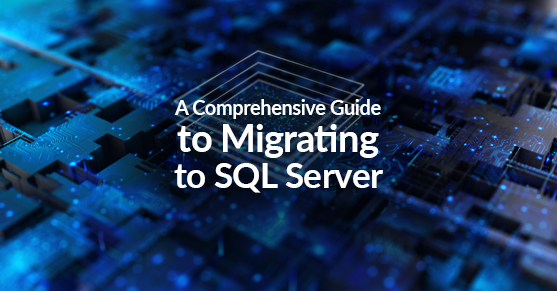Migrating to SQL Server presents businesses with numerous opportunities to streamline operations, improve performance, and enhance data security. However, the migration process can be complex and challenging, especially for companies with limited experience in database management.
In this article, we will discuss the benefits of migrating to SQL Server, highlight potential risks and challenges, and outline a step-by-step guide for a successful transition. We will also introduce the services provided by XTIVIA that help businesses migrate to SQL Server, either on-premise or to the cloud, and provide professional support throughout the process.
Benefits of Migrating to SQL Server
- Enhanced Performance: Offers advanced performance optimization features, enabling businesses to process large volumes of data quickly and efficiently.
- Scalability: Provides a scalable platform that can grow with your business, accommodating increasing data volumes and user demands.
- Improved Security: With robust security features such as encryption, access control, and auditing capabilities, SQL Server helps businesses protect sensitive data and maintain compliance with industry regulations.
- Integration with Microsoft Ecosystem: As part of the Microsoft ecosystem, SQL Server seamlessly integrates with other Microsoft products, simplifying data management and analysis across various platforms.
Risks and Challenges
- Data Loss: During the migration process, there is a risk of data loss or corruption if proper precautions are not taken.
- Downtime: The migration process may result in temporary downtime, impacting business operations and productivity.
- Compatibility Issues: Businesses may encounter compatibility issues with existing applications and systems when migrating to SQL Server.
- Resource Constraints: The migration process can be resource-intensive, requiring significant time and effort from your IT team.
Step-by-Step Guide to Migrating to SQL Server
- Assess Your Current Environment: Evaluate your existing database infrastructure, identify potential compatibility issues, and determine the appropriate SQL Server edition for your needs.
- Develop a Migration Plan: Create a detailed migration plan, outlining the necessary steps, timelines, and resources required for a successful transition.
- Prepare Your Data: Cleanse and format your data to ensure compatibility with SQL Server, addressing any data quality or integrity issues.
- Implement Data Security Measures: Establish and enforce data security policies, including encryption, access control, and monitoring, to protect sensitive information during and after the migration process.
- Test the Migration Process: Conduct a trial migration in a test environment to identify potential bottlenecks and issues, allowing you to address them before the actual migration.
- Execute the Migration: Migrate your data to SQL Server, closely following your migration plan and monitoring progress to ensure a smooth transition.
- Validate and Optimize: Verify the success of the migration by validating data accuracy and integrity, and optimize your new SQL Server environment for peak performance.
Introducing XTIVIA’s Services
XTIVIA offers a range of services designed to help businesses migrate to SQL Server smoothly and efficiently, either on-premise or to the cloud. With expert guidance and support, XTIVIA’s services offer several key benefits:
- Expertise: XTIVIA’s team of experienced professionals can manage the entire migration process, ensuring a seamless transition with minimal disruption to your business operations.
- Customized Solutions: XTIVIA offers tailored migration solutions, catering to your unique business requirements and addressing any compatibility or integration challenges.
- Risk Mitigation: By leveraging industry best practices and advanced tools, XTIVIA minimizes the risks associated with data loss, downtime, and compatibility issues.
- Ongoing Support: XTIVIA provides ongoing support and maintenance services, ensuring your SQL Server environment remains secure, optimized, and up-to-date.
Conclusion
Migrating to SQL Server offers numerous benefits for businesses, including enhanced performance, scalability, and security. However, the migration process can be complex and challenging. By following a step-by-step guide and partnering with a trusted service provider like XTIVIA, businesses can ensure a smooth and successful transition to SQL Server while mitigating potential risks and challenges. With expert guidance, customized solutions, and ongoing support, XTIVIA’s services stand out as a comprehensive solution for businesses looking to migrate to SQL Server, either on-premise or to the cloud.
Contact us for more information.

